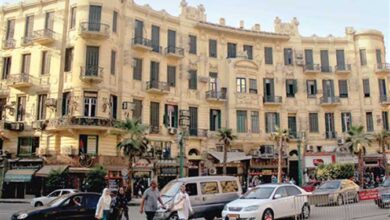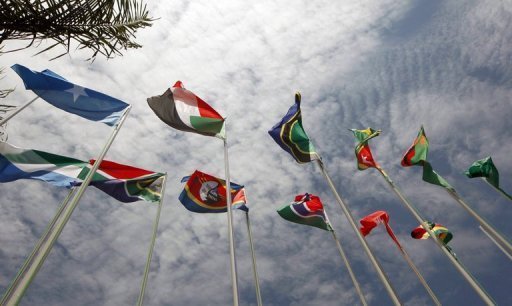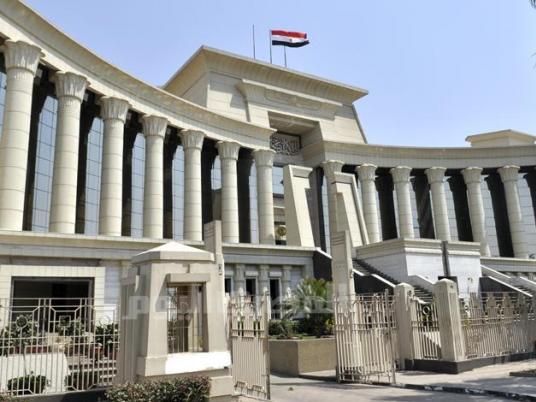"I think you can see how many [former regime officials] have been released from prison. They’ll give them bonuses next,” President Mohamed Morsy said at a news conference in late March.
The acquittal of several former regime officials charged in corruption cases had clearly bothered Morsy, whose group has been mobilized to protest today, Friday, to demand the purging of the judiciary. Within the same breath, however, he emphasized his respect for the judiciary.
The Muslim Brotherhood and its man in office have had a rocky relationship with the judiciary since their rise to political power, respecting certain decisions and clearly flouting others.
In January, the president called on Port Said residents to respect judicial rulings after a court ordered the execution of 21 local Masry Ultras in the Port Said football violence case. Residents accused the judiciary of bias and of appeasing Ultras Ahlawy, a Cairo-based group of ultras, or hardcore football fans.
Later in March, neither the president’s office nor the Brotherhood seemed even a little fazed about a ruling that annulled the appointment of the current prosecutor general. The Brotherhood-appointed prosecutor general said he would stay in office.
Abdel Moneim Abdel Maqsoud, a Brotherhood lawyer, said that it is not in the group’s nature to undermine the judiciary, as it has always respected the legacy of the judicial branch, which he said brought justice to the Brotherhood on several occasions under former President Hosni Mubarak’s rule.
Abdel Maqsoud does not believe the Brotherhood has adopted conflicting positions toward the judiciary. He said the law allows any entity to contest judicial rulings through legal avenues.
It is the media, he argues, that has drawn negative attention to it.
“All judges should steer clear of the media and not give any statements that reveal their political orientations,” he stated. “The Supreme Judicial Council’s decision to ask judges not to appear in the media was prudent, because the phenomenon is new to us and it is dangerous because it opens the door to commenting on judicial rulings and questioning the integrity of the judiciary.”
In its interpretation of the ruling, which voided the prosecutor general’s appointment, the Supreme Judicial Council urged the prosecutor general to take the initiative to relinquish his position and return to work as a judge, and called on judges to refrain from appearing in the media.
But there are several other cases that appear to point to the Brotherhood’s unclear and uneven relationship with the judiciary: a relationship seen by critics as undermining the independence of the judicial branch.
The Brotherhood did not protest a ruling issued in April 2012 ordering the dissolution of the first Constituent Assembly, formed by the now-dissolved People’s Assembly.
But in June, the Brotherhood protested three judicial rulings, exploiting them throughout Morsy’s presidential campaign.
The first ruling acquitted former Interior Minister Habib al-Adly’s aides, charged with the killing of protesters. The second found the People’s Assembly elections law unconstitutional, a ruling that the then-ruling military junta used to dissolve Parliament’s lower house.
The third ruling abrogated the Political Isolation Law, tailored by the dissolved Parliament to disqualify former regime members Ahmed Shafiq and Omar Suleiman from the presidential race. The ruling enabled Shafiq to continue the race, and he eventually reached the runoff election but lost to Morsy.
With a victory in hand, however, the Brotherhood and Morsy praised the judiciary, which it said neutrally supervised the election. Shortly afterward, Morsy honored Farouk Sultan, the Supreme Constitutional Court (SCC) head, after he reached retirement age — despite the many reservations the Brotherhood expressed toward the rulings the SCC issued a month before.
But the honeymoon between the judiciary and the Brotherhood would soon end. In November, before the SCC could review a case calling for the dissolution of the Constituent Assembly and the Shura Council — whose session was scheduled for 2 December — Morsy issued a constitutional declaration that immunized the two bodies, and removed the prosecutor general.
Judges and opposition powers saw the move as a flagrant infringement on the judiciary’s role.
Muslim Brotherhood members besieged the SCC around the time the ruling was expected, and a few days later, the group’s official spokesperson described the SCC as “a counter-revolutionary power” after it “suspiciously” issued a ruling to dissolve the People’s Assembly in June.
Sabry Amer, a Freedom and Justice Party member and former head of the dissolved People’s Assembly transportation and information committee, believes judges are to blame for issuing rulings out of touch with the zeitgeist.
He believes judges fail to observe the spirit of the law and “do not at all feel what this nation, which is ailing economically and politically, is going through.
“I do not wish to say that the judiciary is politicized, but it is a state institution, and so it should have a sense of the conditions in the country,” he argues.
He adds that there is a difference between implementing the law on a healthy man and implementing it on a sick one.
“There is something they call a medical pardon,” he says.
Amer says the ruling to dissolve the People’s Assembly failed to observe the country’s conditions, even if it was legally justified.
“The ruling was issued by a man who did not see or hear of the country’s circumstances,” he says. “So long as parliamentary elections were free, characterized by integrity and achieved some degree of justice, then he should have taken into account the nationwide conditions. A country at war is different from one at peace.”
Amer thinks that strict implementation of the law is acceptable under normal conditions, but “not in the exceptional conditions we are living in.
“What law or constitution was it that justified the stepping down of Mubarak and the dissolution of the People’s Assembly and Shura Council at the beginning of the revolution?” he asks.
Essam al-Tobgy, a State Council member, says, “The Brotherhood is the last to speak about the country’s interests and judicial rulings because, from the beginning of the revolution, they refused to pass exceptional and revolutionary laws.”
Tobgy adds that none of the members of the Brotherhood should claim that the judiciary is corrupt. If that were the case, then Morsy should be the first to step down, as it was the same judges whose integrity he contests who supervised the election that brought him to power.
Adel Ramadan, a lawyer with the Egyptian Initiative for Personal Rights, agrees with Tobgy that it is in the Brotherhood’s interest not to cast suspicions on the judiciary’s integrity. He says those in power want to create the impression that the judiciary is independent because it plays an important role in running state affairs, so the Brotherhood has no interest in causing people to lose confidence in the judiciary even if they are at odds with it.
“A society without a judiciary cannot be controlled,” he adds.
Ramadan adds that there are issues that reveal the disagreement between the judiciary and the Brotherhood, such as when the SCC invalidated the parliamentary elections law as if to send a message that it is the highest judicial body in the country and its authority cannot be challenged.
“All of those rulings do not flout the law, because the court will sometimes strictly apply the law and at others only flexibly implement it. It has a margin of action within the limits of the law itself,” he argues.
Ramadan says that the Brotherhood has very little presence within judicial circles, with the majority of judges being independent, or associated in some way with the former regime. This, he says, may partially explain why the Brotherhood tends to antagonize the judiciary.
The Brotherhood undoubtedly wants to control a power as important as the judiciary, he adds, though it has no vision for the judiciary’s role. The group only sees it as a tool to dominate, Ramadan says.
Now that the group is in power, he states, it is trying to control the judiciary the way it did with the prosecutor general’s position. In the past, it always sought to win the sympathy of the judiciary when it belonged to the ranks of the opposition.



